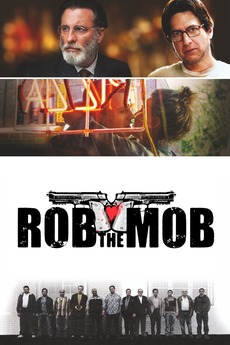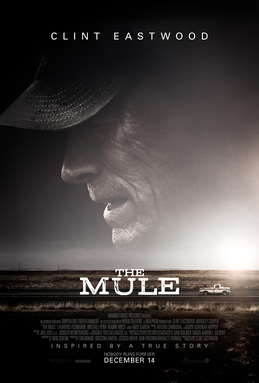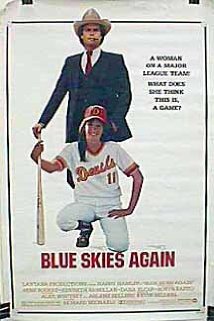I had high hopes for Pain Hustlers, largely because it featured some of my favorite actors and actresses. Chris Evans, Emily Blunt, Andy Garcia …. how can you go wrong with that cast, right?
Unfortunately, when I watched the film, it only took a few minutes for me to lose interest. The film opens with black-and-white interview clips of Liza Drake (Emily Blunt) and Pete Brenner (Chris Evans), in which they both claim to be the only one who can tell the true story of how a failing pharmaceutical firm became a powerhouse by bribing doctor to prescribe Fentanyl. For lack of a better term, I refer to this as the I, Tonya approach though it perhaps would be better to name it after director Adam McKay, whose superficial but slickly made films are often mistaken for being important political statements. It’s a style of filmmaking that may have once been exciting but now, it’s so overused that it’s come to feel a bit like a cliché.
As for the film itself, it opens with Liza working as an exotic dancer and living in a run-down motel with her daughter, Phoebe (Chloe Coleman). A chance meeting with pharmaceutical salesman Pete Brenner leads to Liza getting a job as a sales rep despite the fact that she’s a high school drop-out who previously served time in jail for drug trafficking. (Pete writes up a fake resume for her and lists her as being PHD, which Pete says stands for, “poor, hungry, and desperate.”) After a rocky start, Liza is able to convince Dr. Lydell (Brian D’Arcy James) to start prescribing a powerful painkiller that was developed for cancer patients. Of course, people get addicted to the drug and many overdose but it doesn’t matter because Liza, Pete, and Dr. Lydell are all getting rich. The unstable head of the company, Dr. Jack Neel (Andy Garcia), is happy as long as the money keeps rolling in and as long as everyone takes off their shoes at work because he’s worried about the floors getting dirty.
As I said at the start of the review, the film attempts to take an I, Tonya-style approach to the material, mixing conflicting narrators with moments of dark humor and sudden melodrama. Unfortunately, David Yates is exactly the wrong director for this film. Yates is best-known for his work with the Harry Potter franchise. Yates did a wonderful job directing the last few of the Harry Potter films but, as a director, his tendency is to be a crowd-pleaser and Pain Hustlers fails precisely because Yates always pulls back before the film can get too dark or subversive. This is the type of film where, during the final fourth of the film, everyone starts acting in ways totally contrary to everything we’ve previously learned and seen about them so that the film can end on a traditional note of good vs evil. Watching previously amoral characters suddenly and unconvincingly developed a conscience, I found myself thinking about Martin Scorsese’s The Wolf of Wall Street. One reason why The Wolf of Wall Street worked is because Jordan Belfort remained an unrepentant crook through the entire film, even after all of his schemes fell apart. Scorsese has the courage to the let the audience make up their own mind about Belfort. Scorsese understood that suddenly having Belfort (or Henry Hill in Goodfellas or Ace Rothstein in Casino) develop a sense of right and wrong would not only feel unnatural to the character but it would also undercut the effectiveness of the story he was trying to tell. For lack of a better term, it would feel fake. It would feel like pandering to those who demands a cut-and-dried, easy-to-digest message. That’s a lesson that Pain Hustlers missed, to its detriment.
It’s just not a very good film, which is a shame when you consider the amount of talent involved. Of the cast, Chris Evans is the only one who really makes much of an impression, playing Pete as someone who might not be smart but who definitely understands how to charm enough people to get by. Poor Emily Blunt is sabotaged by an inconsistent script while Andy Garcia is pretty much wasted as Dr. Neel. Seriously, can we make an effort to write more decent roles for Andy Garcia? He’s such a good actor and he keeps getting wasted in these small, pointless roles!
Pain Hustlers was a disappointment for me. It happens.










 1930s. New York City. For years, Stephanie St. Clair (Cicely Tyson) has been the benevolent queen of the Harlem underworld, running a successful numbers game and protecting her community from outsiders. However, psychotic crime boss Dutch Schultz (Tim Roth) is determined to move into Harlem and take over the rackets for himself. With the weary support of Lucky Luciano (Andy Garcia), Schultz thinks that he is unstoppable but he did not count on the intervention of Bumpy Johnson (Laurence Fishburne). Just paroled from Sing Sing, Bumpy is determined to do whatever has to be done to keep Schultz out of Harlem.
1930s. New York City. For years, Stephanie St. Clair (Cicely Tyson) has been the benevolent queen of the Harlem underworld, running a successful numbers game and protecting her community from outsiders. However, psychotic crime boss Dutch Schultz (Tim Roth) is determined to move into Harlem and take over the rackets for himself. With the weary support of Lucky Luciano (Andy Garcia), Schultz thinks that he is unstoppable but he did not count on the intervention of Bumpy Johnson (Laurence Fishburne). Just paroled from Sing Sing, Bumpy is determined to do whatever has to be done to keep Schultz out of Harlem.
 As Lisa said in her review of Night Game
As Lisa said in her review of Night Game